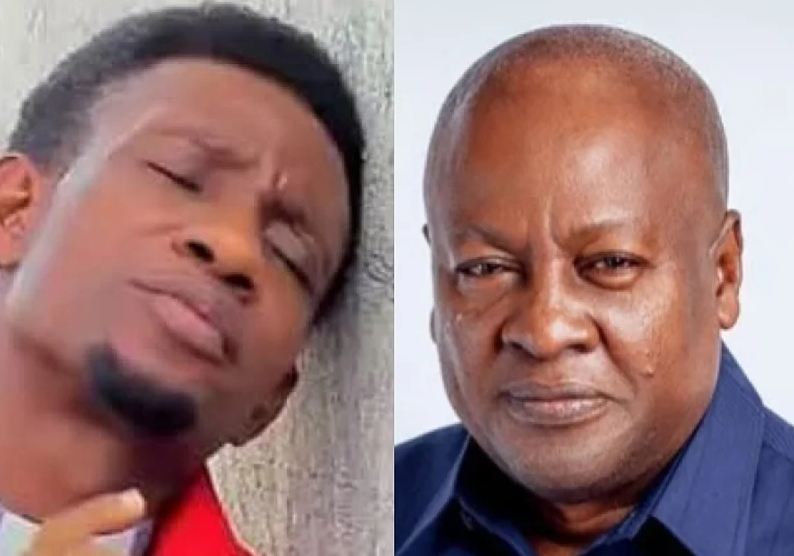Akwasi Nyarko, a Ghanaian gospel musician and evangelist, has issued a desperate plea to President John Dramani Mahama, highlighting his dire living conditions and appealing for immediate assistance. In a widely circulated video, Nyarko revealed his struggles with hunger, stating he hadn’t eaten in three days. He also shared the heartbreaking news that his child has been forced to discontinue schooling due to his inability to pay the required fees. Nyarko’s plea was infused with a sense of urgency, evoking the Akan term “Asamando,” referring to the afterlife, suggesting the severity of his situation and the fear of impending doom if help doesn’t arrive soon. This public cry for help paints a stark picture of the artist’s desperation and the precarious position he and his family find themselves in.
Nyarko’s appeal goes beyond a simple request for financial aid; it exposes a perceived betrayal by the political party he once championed. The gospel musician claims to have actively supported President Mahama and the National Democratic Congress (NDC), even composing a campaign song for their political endeavors. However, he now feels abandoned and forgotten by the very people he believed he was supporting. This perceived abandonment adds another layer of complexity to his situation, transforming his plea from a purely economic one to a lament of broken trust and unfulfilled promises. The contrast between his past support and his current predicament underscores his disillusionment and the perceived ingratitude of the political establishment.
Further deepening the narrative, Nyarko alleges that his open support for the NDC has had severe repercussions on his music career. He claims to have been essentially blacklisted within the industry, facing difficulties securing shows and any form of support. This allegation suggests that his political stance has led to professional ostracization, compounding his financial struggles and painting a picture of a man caught in a difficult situation with seemingly limited options. The claim of blacklisting raises questions about the potential consequences of political endorsements within the entertainment industry and the potential for artists to face repercussions based on their political affiliations.
Nyarko’s public plea, fraught with emotion and desperation, has ignited a wide range of responses on social media platforms. While some express empathy for his plight and advocate for assistance, others offer a more critical perspective. These critics argue that public figures should not expect rewards or preferential treatment for their political endorsements. They suggest that political support should be driven by genuine conviction, not the expectation of personal gain. This divergence of opinion highlights the complexities surrounding political endorsements, especially within the context of the entertainment industry, and the varying societal perspectives on the relationship between artists, politics, and public expectations.
The situation surrounding Akwasi Nyarko highlights several interconnected issues. It underscores the challenges faced by artists, particularly in developing economies, who may struggle to make a sustainable living from their craft. It also touches upon the complex interplay between art and politics, raising questions about the potential consequences of political endorsements and the ethical considerations involved. Furthermore, Nyarko’s case brings into focus the broader societal debates surrounding the responsibilities of political figures towards their supporters and the extent to which individuals should expect reciprocity for their political allegiances.
Ultimately, Akwasi Nyarko’s story serves as a poignant reminder of the human cost of political engagement and the potential vulnerabilities faced by artists who choose to publicly align themselves with particular political ideologies. It also sparks a crucial conversation about the role of social safety nets and the responsibility of governments to address the needs of their citizens, especially those who find themselves in dire circumstances. The debate surrounding Nyarko’s plea forces us to confront uncomfortable questions about the nature of political loyalty, the potential repercussions of public endorsements, and the ethical obligations of both individuals and institutions within the political landscape.


